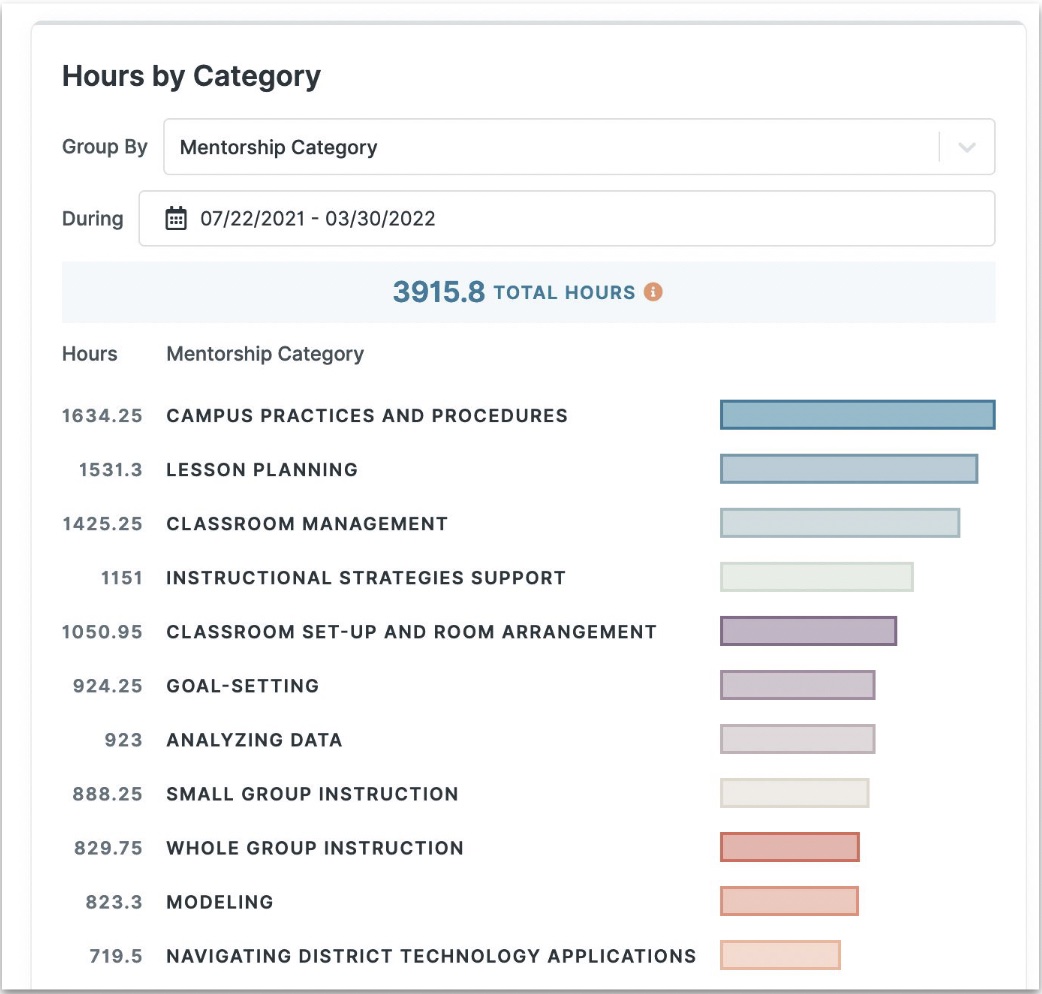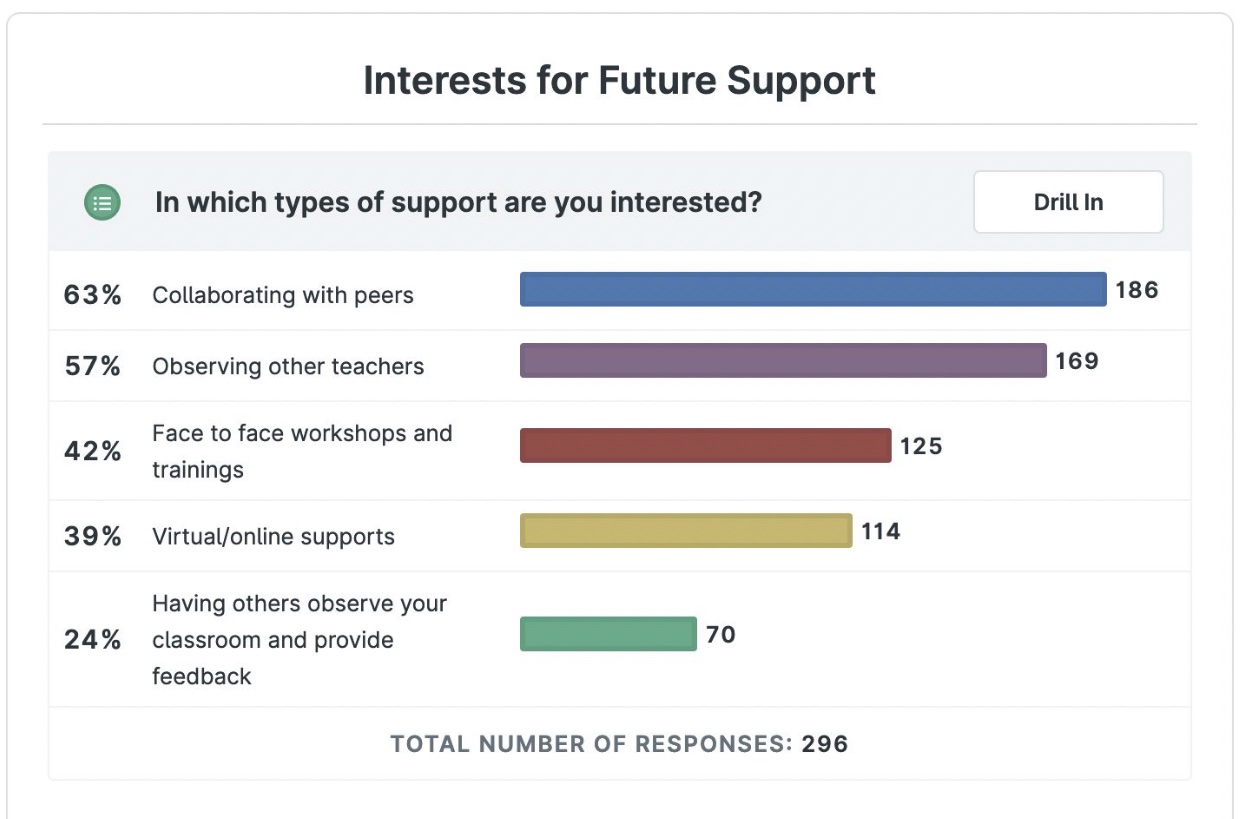“With hiring and retention more important than ever, our district needs to not only track new teachers’ and mentors’ work toward PD credit but also to gather formative feedback so we can align needs with supports.”
Hundreds of new teachers cycle into the Cypress-Fairbanks Independent School District every year. In the interest of making them effective more quickly – and keeping them around longer – the district provides these new teachers with strong induction and committed mentors. With KickUp, Cypress-Fairbanks leaders are also tracking the types and effectiveness of those supports, so they can optimize mentors’ time and energy.
Like many suburban districts surrounding Texas’ cities, the Cypress-Fairbanks Independent School District northwest of Houston has grown and evolved significantly over the last several decades. Once a rural area home to many German immigrants, Cypress-Fairbanks is now densely populated; the district has become the third-largest school district in the state, enrolling more than 115,000 students, more than half of whom are economically disadvantaged. And similar to other Texas districts, enrollment has become more diverse, with 45% of students Hispanic, 21% white, and 20% African American.
To keep up with the continued influx of residents to the area and shifts in student needs, the district builds a new campus every few years, with 20 of its 92 schools opened in just the last 15 years. Between this growth and standard teacher turnover, Cypress-Fairbanks ISD’s Office of Professional Learning “onboards” about 1000 new teachers every year – 60% of whom are brand new to teaching, and 40% of whom are new to teaching in Texas but have experience elsewhere.
All of these teachers receive one year of induction support that starts on the very first day of new staff orientation before the school year begins, and includes a dedicated on-site mentor who helps them acclimate to their first year in a Cypress-Fairbanks classroom. Effective mentorship programs can not only help new teachers survive and thrive in the classroom more quickly but also increase the number who stick around past the first few challenging years – particularly when mentors are trained and rewarded for their time, and when their work is aligned with the needs and goals of the school and district.

As the program has grown, its leaders have striven to better align new teachers’ ongoing needs with induction programming, including the information that mentors share and model. These mentors are in turn supported on each campus by one or two “lead mentors,” who bring that school’s mentors together throughout the year for “campus share sessions” organized around the phases of the first year of teaching first defined by New Teacher Center founder Ellen Moir. These lead mentors also meet regularly with Tonya Dixon, the district’s Professional Learning Specialist, who shares data, strategies, and resources that can help them guide mentors and ensure that they deliver support down to the new teachers with whom they are working.
Cypress-Fairbanks ISD’s leaders want to ensure that their sizeable induction program is both useful to new teachers and manageable for mentors. For years, the district had been using legacy software to track teacher and mentor time spent together toward professional development credit, as well as lead mentors’ time spent toward either credit or compensation. District leaders turned to KickUp in 2018-2019 for help integrating this tracking functionality with more formative feedback on its induction programming for new teachers and on the support provided by mentors.
For the last several years, Cypress-Fairbanks has been refining the data it collects from new teachers and mentors, including three surveys per year for new teachers about the induction and mentorship support they are receiving, as well as mentorship logs.
For example, the survey administered after the new staff orientation in fall 2021 was attached to a QR code that allowed nearly 600 of the district’s 800 new educators to provide feedback quickly at the end of the event. The mid-year survey administered in January had a lower response rate, with about 300 of the new teachers, but anonymized responses were packaged and delivered to each school’s principal along with information about how they could log into KickUp and explore their school’s data as a way of guiding their own efforts to support new teachers and guide mentors.
In addition to survey responses asking for more support on certain practices or challenge areas, Cypress-Fairbanks ISD mentors track how they are spending their time, which often signals to district leaders the kinds of professional learning they may need to provide or shore up. Recent data has shown that although the district’s mentors are spending a significant number of their hours on classroom management, new teacher surveys continue to ask for support in this area, which reflects a major area of challenge for schools nationwide in their return to in-person schooling after months of distance learning prompted by the COVID-19 pandemic. “Classroom management is always a challenge, but it’s been a challenge this year even for our seasoned teachers,” says Dr. Horner.

New teachers are also asking for more observations, including the opportunity to visit their peers and the classrooms of veteran teachers, as well as to get feedback from mentors and other teachers. Dr. Horner notes that observations were a challenge this school year, with many teacher absences due to COVID-19 and a dearth of substitute teachers, but that the district is considering ways to increase observations next year.
With several years of KickUp data about the activities, needs, and satisfaction of new teachers and mentors, Cypress-Fairbanks ISD leaders are now gathering data to better understand whether these efforts are leading to greater retention of new teachers and of the mentors who support them. Like teachers in other parts of the country, many teachers in Cypress-Fairbanks ISD report feeling burnt out, and human resources and professional learning staff want to ensure that struggle does not lead them to early retirement. “We’re a customer service-oriented business and our teachers are our internal customers, so we want to measure teacher retention as well as satisfaction,” says Dr. Horner.
Dr. Horner’s team is also beginning to share KickUp access and data with lead mentors and school principals. Ultimately, this data could help Dr. Horner and Dixon make the case with the district and state (or with philanthropy) for supporting more than one year of induction and mentorship for their new teachers. Research shows that three years of induction lead to improved retention as well as student achievement increases. A previous Texas grant that provided two years of mentorship support led to increased retention and satisfaction among new teachers.

You can't trust everything you read on the internet.